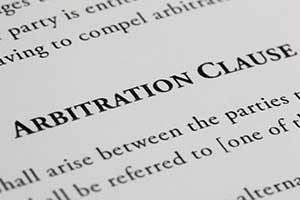In a recent decision, the Fourth Circuit Court of Appeals addressed the First Amendment implications of federal debt-collection automated calls. More specifically, the court analyzed the Telephone Consumer Protection Act (the “TCPA”), a law which protected such calls as an exemption to its general prohibition against calls to personal phones using an automated telephone dialing system. What is the TCPA? In 1991, Congress enacted the TCPA to protect consumers from unwanted, unsolicited, and intrusive automated calls, which were becoming ubiquitous. Initially, the law recognized two exemptions to the general prohibition on the practice commonly known as robocalling: calls to notify the public of an emergency and calls made…
-
-
Fourth Circuit: Arbitration Agreement in Employee Handbook Not Binding
A recent decision by the United States Court of Appeals for the Fourth Circuit ruled that a North Carolina employee suing under federal and North Carolina law for wage and hour violations was not required to participate in arbitration despite an arbitration clause in her employee handbook.[1] The Fourth Circuit acknowledged that North Carolina law would ordinarily bind the employee via implied consent to the clause, but she signed an acknowledgement form upon receipt of the handbook that expressly stated the handbook provisions did not constitute a binding contract. Rose Lorenzo, an employee of Prime Communications, LP, managed a…
-
Deceptive Conduct Likely Needed to Transform a Breach of Contract Claim to Unfair and Deceptive Trade Practice
While unfair and deceptive trade practice claims are sometimes alleged concurrently with breach of contract claims, a breach of contract alone does not constitute an unfair or deceptive trade practice. To prevail on both a breach of contract claim and an unfair and deceptive trade practice claim, North Carolina and federal courts require the breach to be accompanied by “substantial aggravating circumstances.” However, courts have provided little to no guidance on what amounts to substantial aggravating circumstances. A recent decision by the U.S. District Court for the Eastern District of North Carolina provides some insight.[1] Judge Flanagan indicated that, to be successful on both an…


